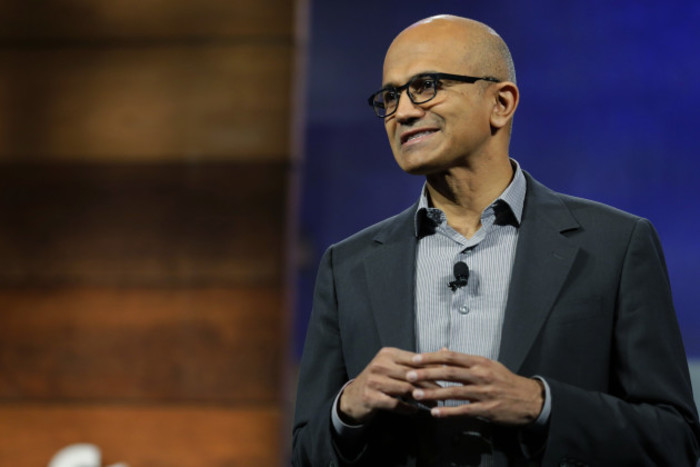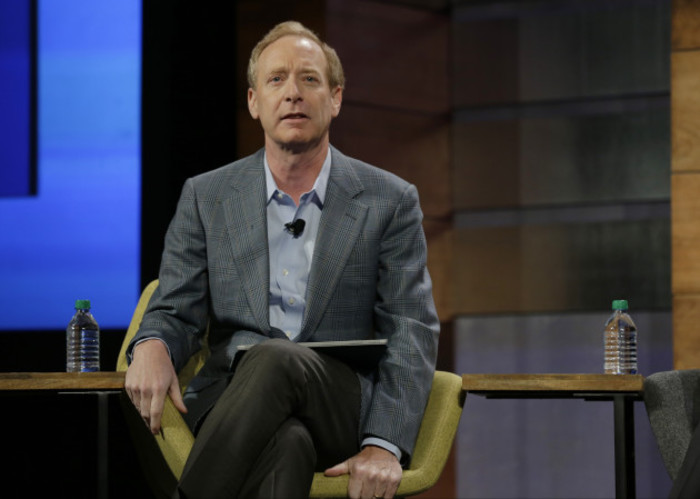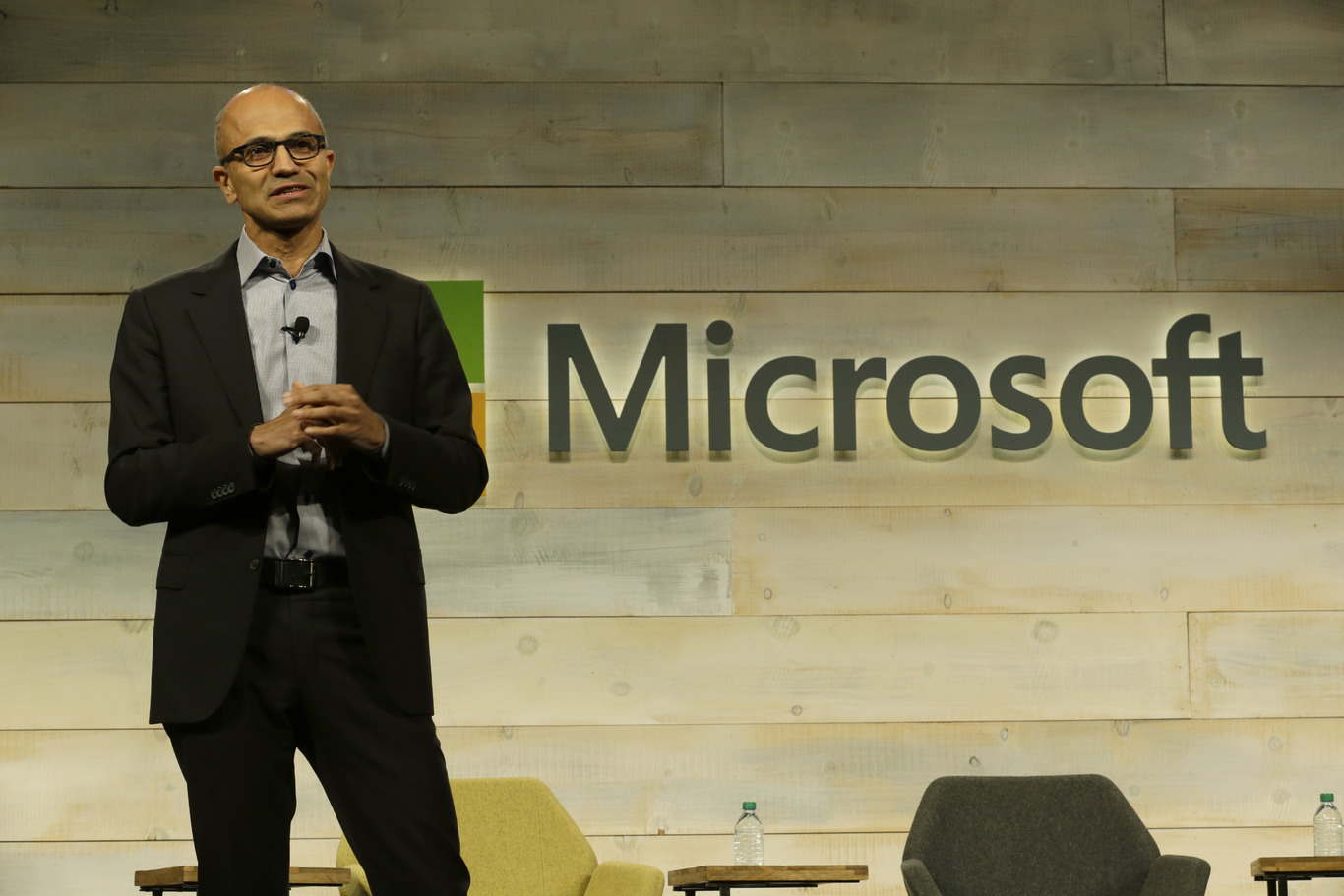Microsoft's CEO was in Dublin today to talk about kick-starting the next industrial revolution
Satya Nadella was in the Irish capital to launch his company’s new playbook for cloud computing.
THE HEAD OF Microsoft has outlined 78 recommendations for governments that will help kickstart the ‘fourth industrial revolution’ and promote more use of cloud computing worldwide.
In a new book the company has published, called A Cloud for Global Good, the policies cover key aspects of cloud computing such as users’ rights to privacy and the creation of modernised laws that govern the proper transfer of data across borders.
However, the commentary in the book has also warned that if policies are too strict it could slow down the progress of data-driven technological advances.
Speaking in Dublin today at the Microsoft Tech Gathering, Satya Nadella said that the company has invested over $3 billion in cloud computing across Europe to date, with data centres in Ireland, Netherlands, the UK, and Germany.
He added that Microsoft will be expanding its data centre spread even further this week when it reveals a new facility in France that will increase the spread of its cloud services.
“We pursue to build world-class technology, but it is not about our technology, it is about what happens with our tech in the hands of our customers, whether they be small businesses, entrepreneurs or big multinationals,” he said.
“Cloud computing is not just a single destination, it is a new way of compute storage and networks to come together and creates new distributed computing fabric.
“For example, we are building out our service … but ultimately, it is about the digital transformation that customers and partners and every organisation we work with will achieve through this technology.”
 Microsoft CEO Satya Nadella
Microsoft CEO Satya Nadella
Cloud book
At the Microsoft Tech Gathering, Microsoft president Brad Smith also gave a keynote and spoke about the book, A Cloud for Global Good, and echoed Nadella’s message that cloud computing will lead the next industrial revolution.
He said all other inventions that led previous industrial revolutions – the steam engine, electrical power plants and the microprocessor – are now connected to the cloud, and due to this increased connectivity, Microsoft needs help from governments to make sure this is not abused.
“It starts with us ensuring we have a trusted cloud. That involves a number of issues that governments need to work through around the world. (At Microsoft) we need to focus on security, privacy and transparency and building a cloud that ensures people can rely on us to secure their compliance with law.
“All of this comes down to one thing, it’s about ensuring the kinds of traditional protections that we have all had, not just for years but for centuries, for information that is stored on paper actually persists when we move our information to the cloud.”
He added that the work done between Europe and the US to develop Privacy Shield – a new framework that outlines the proper transferring of data across the Atlantic – should only be the start of a global playbook for how data is transferred.
“If we are going to ensure that there are these new abilities to move data across borders, we also need governments to move forward. We need new cyber security norms that are going to ensure as much as possible that this is a peaceful aspect of human activity.
“We need to pay heed to what some officials in Ireland have made very clear. People have rights in their information and their rights need to be protected and their rights need to persist as information crosses borders.”
 Microsoft president Brad Smith
Microsoft president Brad Smith
Legal challenge
During his keynote address, Smith also spoke about the work Microsoft has done to ensure the privacy of information that is held on its cloud and cited specific legal proceedings the company brought against the US government.
He said when Microsoft established its first data centre overseas in Ireland, the company did not expect it would lead to a significant legal battle with the US government over the latter’s right to access email servers not located in America.
Last July, the long-winded legal battle over the issue came to a close when a US federal court ruled against the US government and its claim that it had the right to issue domestic search warrants for information located on servers outside of the country.
“We brought that case because we thought it involved an important principle. We brought that case because it is important to establish that no government through its own unilateral legal process can reach into other people’s email located in other parts of the world.”





